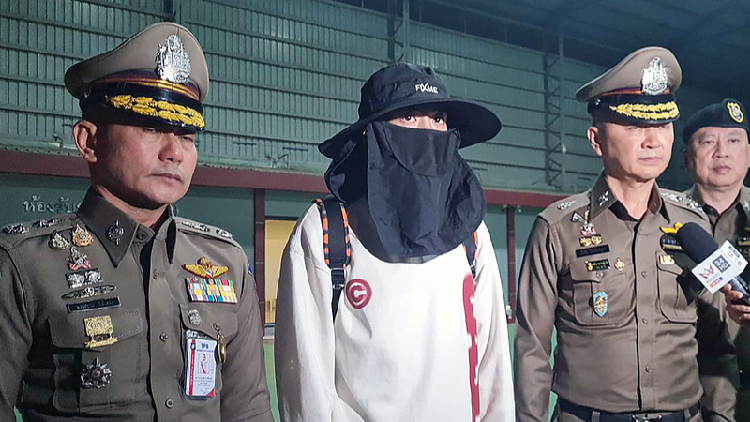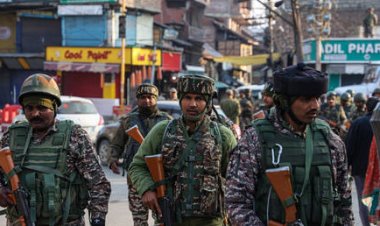Chinese Embassy in Thailand Issues Warning About 'High-Paying Recruitment' Trap
The Chinese Embassy in Thailand issued a reminder on Saturday for Chinese citizens traveling to the country to remain cautious about "high-paying recruitment" scams.

The Embassy warned citizens not to fall for enticing offers such as "high-paying jobs" and "free air tickets and accommodation" to avoid deception.
On Friday, the Embassy confirmed that a Chinese citizen named Wang returned to China after collaborative efforts between Thailand and China.
They expressed gratitude to the Thai government for making Wang's case a priority. His situation arose from cyber-fraud, and the swift rescue operation ensured his safe return.
Wang Xing, a Chinese actor, arrived in Thailand on January 3, but lost contact near the Thailand-Myanmar border. Thai police tracked his movements and successfully rescued him on Tuesday, identifying him as a victim of human trafficking, prompting widespread concern in both China and Thailand.
Details of Wang's rescue efforts were shared by Thailand's Senior Inspector General Thatchai Pitaneelaboot during an interview on Thursday.
The investigation disclosed that Wang had received a job offer that led him to Thailand. After arriving at Suvarnabhumi Airport in Bangkok on January 3, he was picked up by a vehicle arranged by his "recruiter." Thatchai noted that Wang took pictures of the vehicle's license plate and key landmarks along the route, sending them to his girlfriend in China. However, he became aware of the potential deception only after being transported across a river into rural Myanmar, where he found himself in a stark environment devoid of any recreational facilities.
A timeline provided by the Tak Immigration Office indicated that Wang entered Thailand around 3:16 a.m. local time on January 3 and left Suvarnabhumi Airport by car at 3:40 a.m. He passed through Chainat and Kamphaeng Phet provinces before losing contact near Mae Sot, Tak province, around 11:00 a.m.
The immigration office confirmed that Wang was transferred to another vehicle in Mae Sot, with no evidence that he passed through the official point of entry between Thailand and Myanmar.
Thatchai mentioned that various advanced techniques were used to track Wang’s location following a request for assistance. He stated, "It was easier to track his movements since he left Suvarnabhumi Airport directly for the border without any stopovers, which helped us identify where he crossed and ultimately located the driver, leading to more accurate information."
Regarding other possible cases, Thatchai assured that police would assist under the legal process when needed. "However, more complex cases involving changes of vehicles, personnel or directions would present challenges for tracking," he added.
The official urged Chinese travelers to stay alert concerning job offers in neighboring countries, particularly those transiting through Thailand to a third country, to avoid falling prey to scam syndicates.
Thai authorities plan to prioritize cross-border collaboration and preventive initiatives, which include educating the public about the risks associated with traveling to third-party countries under false pretenses and the dangers of human trafficking, Thatchai concluded.
Sophie Wagner for TROIB News
Find more stories on Business, Economy and Finance in TROIB business












